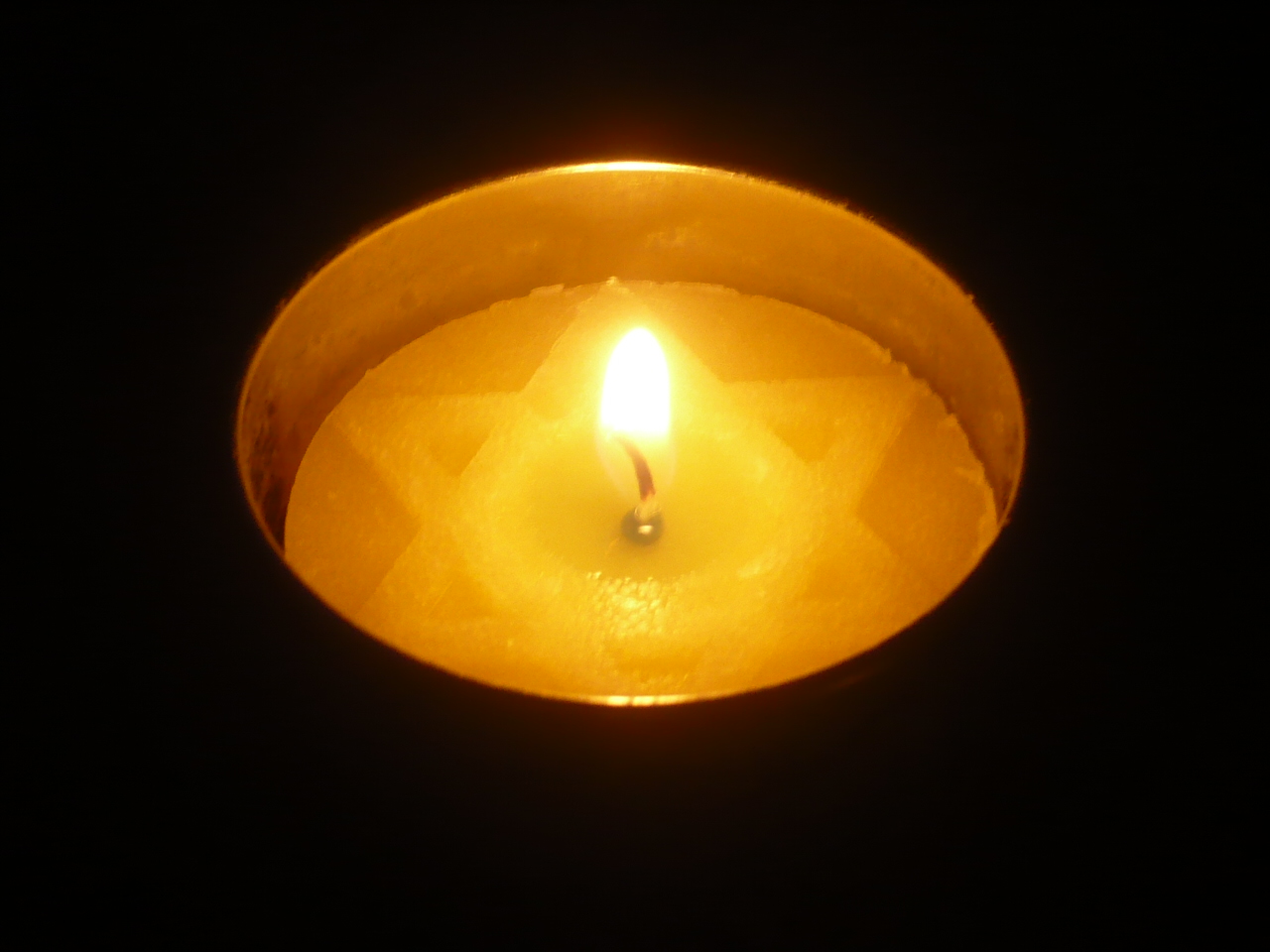 Photo from Wikimedia Commons.
Photo from Wikimedia Commons. Many years ago during the Yizkor service, I asked each of the 2,000 people seated in the quiet beauty of the sanctuary to close their eyes and summon a loved one who had died. “Bring her to life again in your mind — in your memory. See her. See her skin, her hair. Feel his whiskers against your cheek. See his smile and his eyes. Be with her. Speak to her. Tell her what you wish for her. Give her your blessing. Now allow her to leave the room. Be with him. Speak to him. Tell him what you wish for him. Give him your blessing. Now allow him to leave the room. Breathe deeply — and when you are ready, open your eyes.”
Halfway through this visualization, the room was awash in tears, hundreds of grown men and women, weeping, longing … remembering. To remember is the quintessential act of being human. Not in the instinctual, mindless way of salmon swimming upstream to spawn or squirrels finding their long-ago-hidden acorns, but to use memory in a way that summons the past into the present and brings the dead back to life — willfully, beautifully, achingly.
Last year, my father died peacefully in his sleep after a 10-year battle with Alzheimer’s. We buried him the morning of Kol Nidre. Long before, he forgot who he was. He forgot me. There was a new he and a new me created in the vacuum of his mind, no one and nothing was the same — until I chose to remember. To bring my father back to life, I merely have to remember the simple things he loved: a slice from a perfect avocado. Hank Williams and Johnny Cash. A joke — the dirtier, the better. Watching “All in the Family” in his vibrating Naugahyde chair while peeling an orange into a perfect spiral before handing out slices to each of his five children as if feeding a nest of hungry birds.
He didn’t know about sports or college like other dads, but he could back up a semi and operate a crane. My dad taught me to love nature, fishing, pancakes and corned beef hash. Mostly, Dad taught me to enjoy a moment during that moment. So many times when he was eating something delicious and plenty of it, or we were walking in the sunshine, he would just look around and ask rhetorically, “Are we livin’?”
But there is more to the memory of my dad than laughter and love. Harsh memories of discipline and anger, anxiety and fear are repressed but constantly pounding on the basement ceiling of my psyche with a broomstick, reverberating in ways mysterious and dark, animating my own flaws, dysfunction and vulnerabilities. That is the secret truth of memory: We summon it, yet it controls us, it is exquisite, and it hurts — like being caressed and spat on at the same time.
To remember is the quintessential act of being human.
Whenever a villain is mentioned in classical rabbinic literature, his name is followed by the words, “May his name be blotted out.” In the minds of the ancient rabbis, the worst thing one could wish upon another was that he or she be forgotten. And yet within that very curse the name of the villain is nevertheless perpetuated. We can wish that evil, sadness and ugliness be forgotten, but saying “don’t think about it” is to think about it — an attempt at squaring a circle; a fruitless, impossible denial of the constant that is memory itself.
When a nonvillainous person dies, a different hope is suggested when his or her name is mentioned, a beautiful wish: “May his memory be a blessing.” Seemingly different, these two aphorisms, “May his name be blotted out” and “May his memory be a blessing,” speak the same truth — to be remembered is to live beyond the grave in ways sublime and terrible. But how else can we hold on to the people we love, to the past that defines us, the offenses that wound us, or the laughter and the love that warm us? What else can I do when I miss my dad so much? Nothing, other than to embrace this blessing, this curse, this imperfect gift, this burden, this holy vessel — Yizkor.
Rabbi Steve Leder of Wilshire Boulevard Temple is the author of “More Beautiful Than Before: How Suffering Transforms Us.”





















 More news and opinions than at a Shabbat dinner, right in your inbox.
More news and opinions than at a Shabbat dinner, right in your inbox.